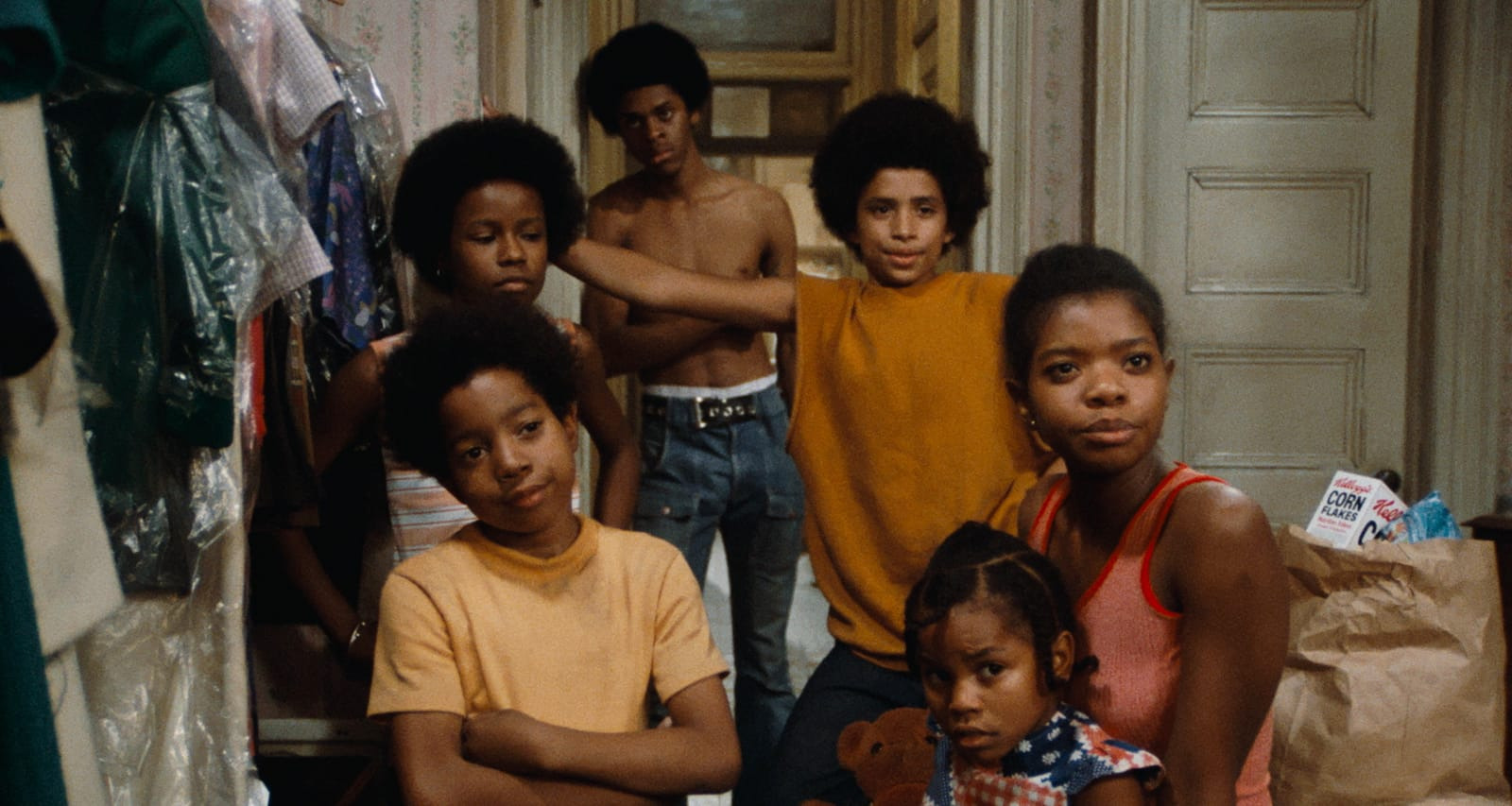Claudine: A Happy Home

I know I need something
From “Cotton Candy on a Rainy Day” (1978), by Nikki Giovanni
Or someone.
While the screen is still dark, Gladys Knight’s voice drifts in, in a strong, sincere belt: “How can I / Work out this sweet relation?” A chorus of male voices answers: “Let us deal with love.” A tableau of highways, north- and southbound traffic beneath New York City’s Triborough Bridge against the dense morning fog. The eaves of brown buildings. A city block. A line of seven pedestrians turns a corner, filling the sidewalk; they pass briskly under the canopy of the Crystal Café and Lounge. The block is shabby, yet joyously appointed. The woman in the middle of the procession wears a paisley tea-length work skirt and blouse, her hair pulled back into a neat chignon. She holds a battered shopping bag and the arms of the children at her flanks as she kisses them goodbye. One by one they part, until she is alone, running for the bus. Gladys and her backing vocalists—her band, the Pips—are still singing.
We follow the woman to the bus, where she joins four other women seated in the back. They share the kind of banter children hear only when they eavesdrop: knowing, barely coded, tongue-in-cheek euphemisms about sex and women’s desire. We learn that the woman’s name is Claudine, that she is tired after another sleepless night of headaches, that she worries after her children and takes little time for herself. “Girl, don’t you know a woman has to have her vitamin F,” one of the bus riders says, and the others laugh. Claudine laughs too. “I can’t be sleeping around, ’cause I got these children,” she says.

This tension between respectable, dutiful motherhood and female sexuality, complicated by race and class dynamics, animates the film Claudine, which opened in theaters in April 1974. During the seventies, Black cinema began to flourish and grew many branches. Hollywood studios churned out blaxploitation films, many of them formulaic cops-and-robbers flicks, after Melvin Van Peebles’s Sweet Sweetback’s Baadasssss Song (1971) made more than $15 million at the box office on a budget of $150,000. Often, women in these movies played sex workers or part-time lovers—sexually liberated characters relegated to the background. Black men asserted power through a pointed, brittle masculinity. Films starring Pam Grier such as Coffy (1973) and Foxy Brown (1974) inverted the gender balance while hewing to the same tropes. A shift happened when actor Sidney Poitier made his directorial debut in 1972 with Buck and the Preacher, starring Harry Belafonte and Poitier himself. He went on to create and appear in a much-beloved trio of comedies also starring Bill Cosby, beginning with Uptown Saturday Night (1974). These films, with their lighthearted moments of slapstick and warm depiction of Black male camaraderie, were, as the scholar Mark Anthony Neal has put it, “a calculated attempt to distinguish some forms of Black film from the blaxploitation fare that had come to dominate the genre.” Claudine arrived in this milieu of plenty. It was another alternative to blaxploitation: a woman’s story, a family drama, a romance with politics. Claudine was the first feature released by Third World Cinema Corporation, the all-too-short-lived production house founded in 1971 by a collective of Black and Latinx artists, including Ossie Davis, Rita Moreno, and Piri Thomas, to “elevate the standards of films dealing with minorities,” according to Jet magazine—both in front of the camera and behind the scenes.
• • •






